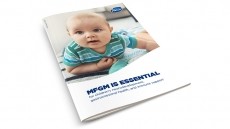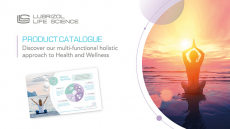Iodine: EFSA proposes 150 µg per day for adults

In a lengthy opinion, the European Food Safety Authority (EFSA) proposed 70-130 µg for infants and children, and 200 µg for pregnant women which accounted for, “the additional needs due to increased maternal thyroid hormone production and the iodine uptake by the foetus, placenta and amniotic fluid.”
200 µg was similarly proposed for lactating women by EFSA’s Panel on Dietetic Products, Nutrition and Allergies (NDA), but noted that, “a full compensation for the iodine secreted in breast milk is not justified for the derivation of DRVs (Dietary Reference Values) for iodine for lactating women.”
Iodine is an essential mineral which is important for human brain development and thyroid function and is mandatorily added to foodstuffs like bread, flour and salt in some countries.
The NDA said the 70-130 µg level for infants and children was based on a large epidemiological study in European school-aged children that showed goitre prevalence was lowest for a urinary iodine concentration above 100 µg/L.
Iodine in the diet
Iodine occurs in food and water mainly as iodide. The iodine concentration of water and foods is highly variable. The richest sources are marine products (such as fish, shellfish and molluscs), eggs and milk as well as their derivatives and iodised salt.
Goitre is a thyroid-related swelling of the neck or larynx.
“In the absence of similar suitable data for other age groups it is proposed that this threshold also be applied for adults, infants and young children,” the NDA wrote in establishing its proposed levels.
The World Health Organization (WHO) has stated that iodine deficiency is the most common preventable cause of brain damage globally.
It said iodine-deficient communities have IQs up to 13.5 points lower than similar but iodine-sufficient communities, and even mild deficiency may have an impact on the developing brain of foetuses and young children.
Stakeholders can give input until February 26 here.
The draft opinion is here.
AIs, DRVs...
AI is a form of DRV that is estimated when a Population Reference Intake (PRI) cannot be established because an average requirement cannot be determined. An AI is the average observed daily level of intake by a population group (or groups) of apparently healthy people that is assumed to be adequate.
DRVs take into account criteria such as food composition or dietary habits, and may be used for assessment and planning of diets.
More on those measures and others can be found here.
















